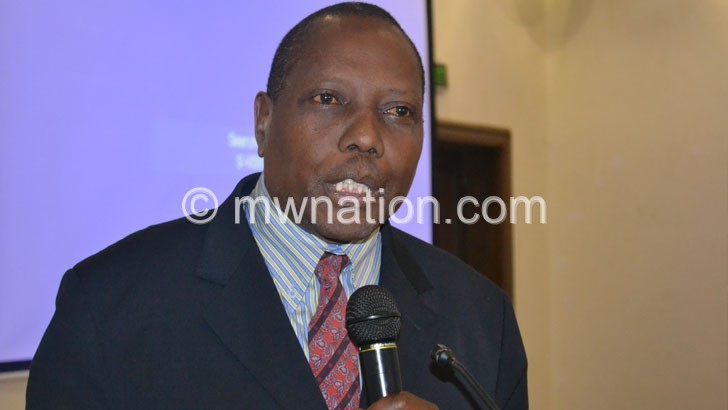‘Government should listen to economists’
In this interview, University of Malawi’s Chancellor College economics professor Ben Kaluwa discusses the state of the country’s economy and what needs to be done, with EPHRAIM NYONDO.

Q
:How best can you describe the current economic situation in Malawi?
A
: Well, we have heard from the Minister of Finance [Goodall Gondwe] and we have heard from the President [Peter Mutharika]. The economy, indeed, is in a bad shape in every sense.
Commodity prices, because of inflation, are above the roof. Budgetary pressures are so heavy, so heavy. The foreign exchange reserves are not looking like they will help us for long. Look here: we rely heavily on imports and most of these imports are not on luxuries. They are imports into production. Our industry is heavily dependent on imports. These are things our industries cannot do without.
The future, honestly, does not look so bright.
Q
: The combination of rising maize prices, the weakening of the local currency and withdrawal of donor support is raising the cost of living for Malawians. However, government keeps saying Malawians should not lose hope because things will be fine soon. Should we believe this?
A
: The Minister [of Finance, Economic Planning and Development Goodall Gondwe], yes, he has to be optimistic. After all, if a Minister of Finance begins to weep in public, it does not bode well for public confidence. He has to show some hope. After all, it is his job. But for some of us, we have serious problems with that.
Q
: Are you saying there are no pointers on the ground that the public could base its hope on?
A
: I was a bit pessimistic earlier on having visited some Southern Region districts to appreciate the maize shortage. This has had an impact on the inflation in the country.
However, on the maize issue alone-because it is critical-I am beginning to be
optimistic, after travelling to the Central and Northern regions. There appears to be some hope. On the tobacco issue, I hope there is hope. I just hope. What remains, then, is on the fiscals-how government spends the money will also be important in the equation.
Q
: On the floatation of the kwacha, do you think government has an alternative?
A
: No. We should have done this much earlier.
We are talking about other countries that did this before in the 1980s-way back and today, they are reaping benefits. Why did we not do this at that time? Other countries are more robust because they started earlier. They have gone into import substitution which we have not done. We are always starting late.
On the floatation of the local currency, we should do a lot of work to attract more investors to come. We need more import substitution and enhanced export diversification. This is what we should work on. But we cannot achieve this if we continue scaring away investors with inconsistent tax regimes.
Q
: Donors say despite withdrawing direct support, they still channel their money into other sectors. However, given the challenges being felt in the health sectors, today, how can the public understand what the donors are saying?
A
: It is indeed true. We know that donors have continued their support and we also know that each donor has a specific area of interest and focus. There, again, has been material support to the health sector. But we know what is happening there too. Drugs going missing and so on. There is too much corruption and abuse of office. But, yes, people can hardly understand that and it is a big problem.
Q
:Do you as an economist believe that things will be fine?
A
: I mean, eventually, well, it might be. You see, government, through its civil service, has very fine economists. In fact, government has always had fine economists. However, the challenge is that government does not listen to these people. Actually, government abuses economists. If government can only stop that and listen to economists, things will begin to shape better.n





